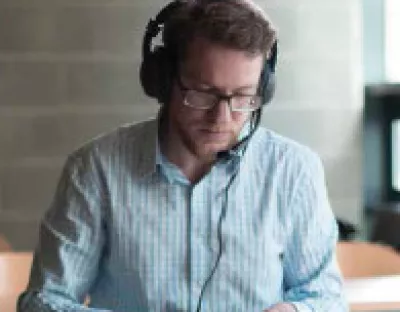By Barbara Watts, MA in History of Family (online)
A colleague granted a year’s sabbatical decided to ‘go the easy route’ by doing a master’s degree online. She ignored my comments that online courses are not for everyone and not as easy as people think. However, not having done any university courses for at least twenty years she began her course the following September. Two weeks into the course she dropped out, taking no responsibility - she blamed the university and the way the course was conducted. Now she was in the unenviable position of having to scramble to be admitted onto any courses she could find to fulfill the requirements of the sabbatical. Eventually three weeks into the first semester she managed to start a course at the local university in a subject she was not really interested in and not applicable to her subject area.
Why this cautionary tale? Online learning is not for everyone. Making the mistake of thinking it is an easy way to gain a qualification is a cause for concern.
On saying that, the ability to access online learning for me has been a godsend. Being Welsh and having completed all my university courses in Canada I hankered after a postgraduate degree closer to the place of my birth. However, I did not want just any degree. The courses had to be of interest and fitting to my past education and my future endeavours. After having completed courses in Local History I knew I wanted to extend my knowledge. The saying ‘the more you know the more you know you don’t know’ was certainly true in my case so I had to do something about it. Having completed several online courses I knew this was the way forward.
My first step was to search online. Here, I have to be honest and say that I did not know anything about the universities in Ireland except what I read in novels. When I found the History of Family taught master’s programme I had to look up the history of the University of Limerick and actually where it was. My geographical knowledge of Ireland was useless. I knew where Kerry was as my father was a ‘Kerryman’ and I knew where Dublin was; other than that, nothing. So after a quick research, I was happy to find how close it was to my father’s home. Further questions resulted in me looking into the History Department, its faculty and research directions. Dr Ciara Breathnach’s research interests struck a chord. After choosing to apply, I ‘met’ Dr Breathnach on Skype and decided this was the right thing to do. Online courses as I have said are not for everyone. While the following can describe any kind of study plan these become even more important for those online.
- A person needs to be independent – as I have been a very independent person since the age of five online learning suits me down to the ground.
- Organization is the key to success – have a schedule that you will stick to but will be flexible enough that you can change it at any time.
- The right resources and materials are essential – being on the computer constantly means both the hardware and software need to be up-to-date and in good working order.
- The capacity for being slightly obsessive helps – but not so much that you never get anything finished.
- Being goal oriented is essential - deadlines keep you going but you must want to do the work.
- The ability to be alone for long periods of time helps – however, keeping in touch with even one other student via e-mail or Facetime is very important.
- Study space needs to be attractive, tidy and inviting – your surroundings are very important decorate with your favourite things and clean up each evening ready for the morning.
- Take time away from the desk – schedule coffee time, exercise and time with family.
I have completed quite a few online courses over the years, some just one module in duration, others full year courses. While completing courses online is not for everyone, I have been able to access programmes that are not offered in my town or even my continent.
| Pros | Cons |
| No distractions | Can be lonely/ tendency to work long hours |
| Work at your own pace | Must meet deadlines |
| No need to get dressed up | There is a temptation to stay in pj’s all day |
| Log on to podcasts any time | Depending on what time zone you are in being aware of time differences is crucial. |
| When the weather is bad you don’t have to go out | Not meeting with people who are on your course |
| No need to travel to class (saves money on gas) | Sitting in one spot for hours is not good for the body or the mind |
| Being able to listen to the lectures on your own time | Not being able to join in discussions |
| Able to access courses not otherwise available to you |
The History of Family online course turned out to be exactly what I was looking for. Dr Breathnach and other students are just an email away and I can work at my own – often frantic – pace but knowing that I am in control of my own learning.



